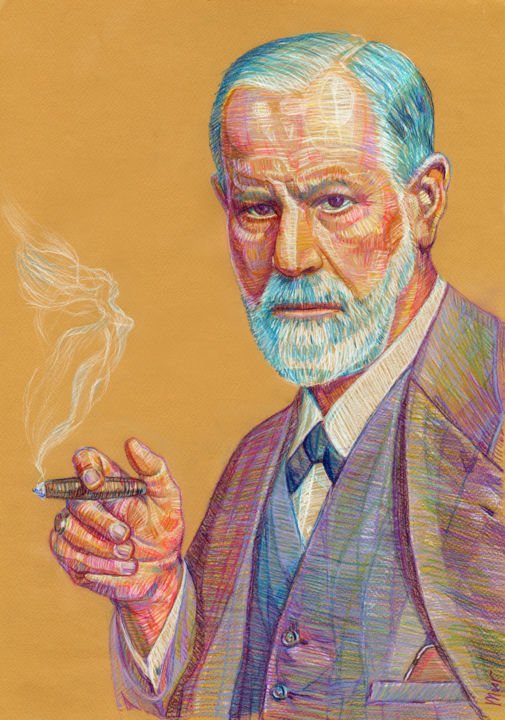
Suffering is not just a neurotic problem.
It’s equally an existential issue.
And in the end, it’s a spiritual matter.
I invite you to explore yourself on all three levels of analysis.
Why, and how? Allow me to share some experiences and insights.
Hello,
After many years of studying psychological suffering within myself and others, I thought it would be worthwhile to share with you the framework that became the foundation of how I approach psychological well-being and therapy.
Suffering seems to takes place on three distinct but interacting levels:
1) The neurotic level. 2) The existential level. 3) The spiritual level.
The following three paragraphs below aim to convey what suffering on each respective level entails. On the Approach page you’ll find my view on therapy, as well as a charter on how these three levels interact, and how progress - or lack thereof - on one level, impacts your state on the other two levels.
If this framework and approach happen to resonate, and you could use some professional help, feel welcome to reach out for a free orientation call.
1) We suffer at the neurotic level
What does that mean?
Neurotic suffering is the hardship of emotional and relational patterns established in the past, hurting your ability to navigate life and relationships in the present. It is the pain of wanting to, but seeming unable. The pain of continually ending up in that which is on some level familiar, instead of that which is good for you. Indeed, “You can get addicted to a certain kind of sadness.”
It’s being stuck in anxious, depressing, destructive loops that aren’t always what they seem at first or even fifth glance. There are forces at work within us. Fears, desires, aversions, griefs and relational patterns that can operate at varying degrees below our conscious awareness, and manifest themselves in a repressed fashion.
This repression often has an adaptive history, meaning that at one point in life expressing a theme was deemed an unacceptable risk to relationships with caretakers or peers.
Instead of being expressed, that theme became a source of anxiety, was repressed, and can manifest as the persistent symptoms that usually prompt someone to seek out therapy in the first place: other anxieties, depression, mood swings, anger, physical symptoms, compulsions, addictions, sexual dysfunction, dysfunctional relationships, etc.
But not all suffering on this level requires such thorough excavation. In more rare cases of high-intensity trauma, the nature of neurotic patterns is more straightforward. Read more.
2) We suffer at the existential level
What does that mean?
Existential suffering is the suffering of not living well. It is the suffering of living in denial of your conscience and potential. The suffering of living in that dark triangle of resentment, arrogance and deception. Of living as a role-based persona with no substantive concept of self underneath the outward - and inward - display. It is a life “in sin and misery, in the House of the Rising Sun”.
It is said that some original Freudian models no longer apply to the Western world, because we no longer have to suppress our sexual urges and personal preferences like Vienna’s early 20th-century upper class had to. Instead of suffering from unfreedom, we now suffer from freedom. For being free equally entails your ultimate, sole responsibility for the way your life unfolds — and the clock is ticking.
Irvin Yalom’s school of Existential Psychotherapy posits that man is faced with four so-called “ultimate concerns”: death, freedom, isolation and meaninglessness. This confrontation can sometimes even be so painful, that it is actually repressed and manifests as one of the symptoms mentioned previously in level 1.
Additionally, Mytho-Existentialism (yes, I’m making up words) in Joseph Campbell’s vein, and more recently expanded and refined by Jordan Peterson, is an important part of my approach to existential suffering.
Our two entire sit-downs can be seen here.
“Life without truth is hell”
The implicit moral thesis in Gladiator
3) We suffer at the spiritual level
What does that mean?
Spiritual suffering is the suffering of being trapped in personhood. It is being burdened by the past, while at the same time being anxious of the future, and therefore rarely present.
It is seeking alleviation through attainment, of ‘adding to yourself’ in the spheres of profession, status, romance, material, knowledge, experience and skill, only to find every time that none of them bring lasting peace.
It is the egoic pain of comparing yourself to others and feeling you fall short. It is oscillating wildly between aversion and desire, being offended and offending in return. It is life lived through the pain-body.
It is the suffering of thinking your essential identity resides in your thoughts, feelings, life story, beliefs, ideology, relationships, status, possessions, traits, skills and occupations. Indeed: it is thinking that you are your personhood.
In short, it is the suffering of trying and failing to find peace and ‘yourself’ on the level of thought and form, because you do not know what you are beyond thought and form: the inviolable, merely observing conscious emptiness in which the world of thought and form arises, is observed, and dissolves. You already are the peace that you seek.
Welcome, you have now entered the realm of Perennial Philosophy; the core of almost every spiritual and religious tradition on earth. Read more.







